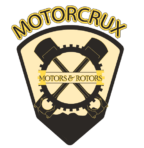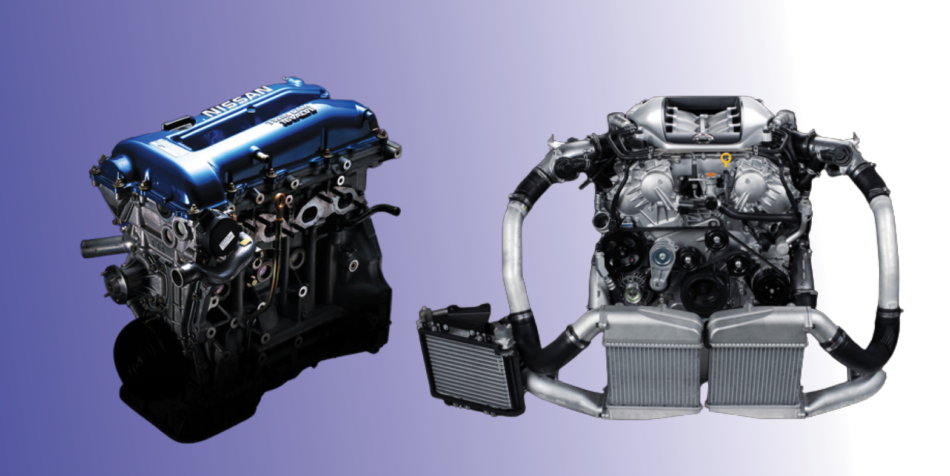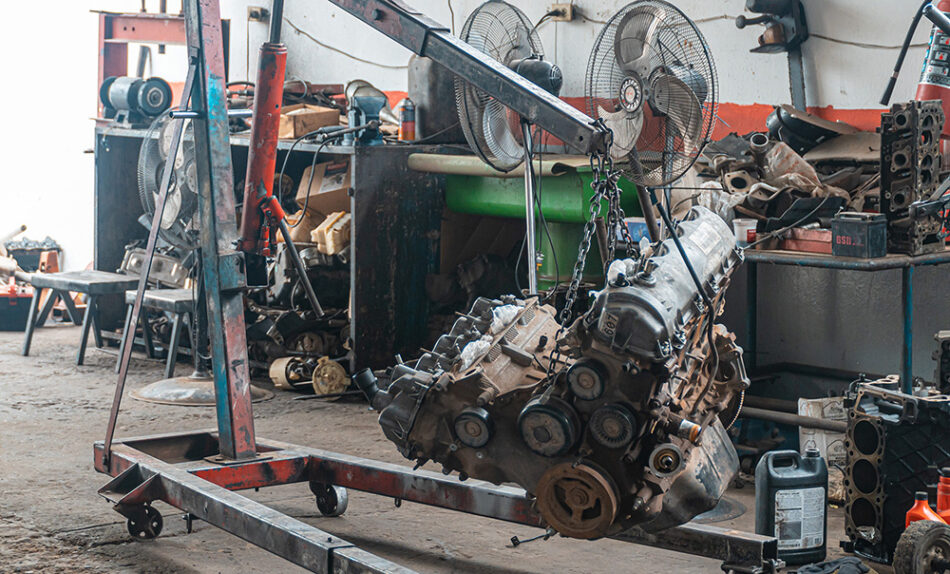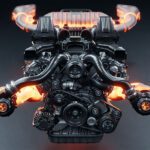3 Worst nissan engines: The engines that ruined Nissan's reputation
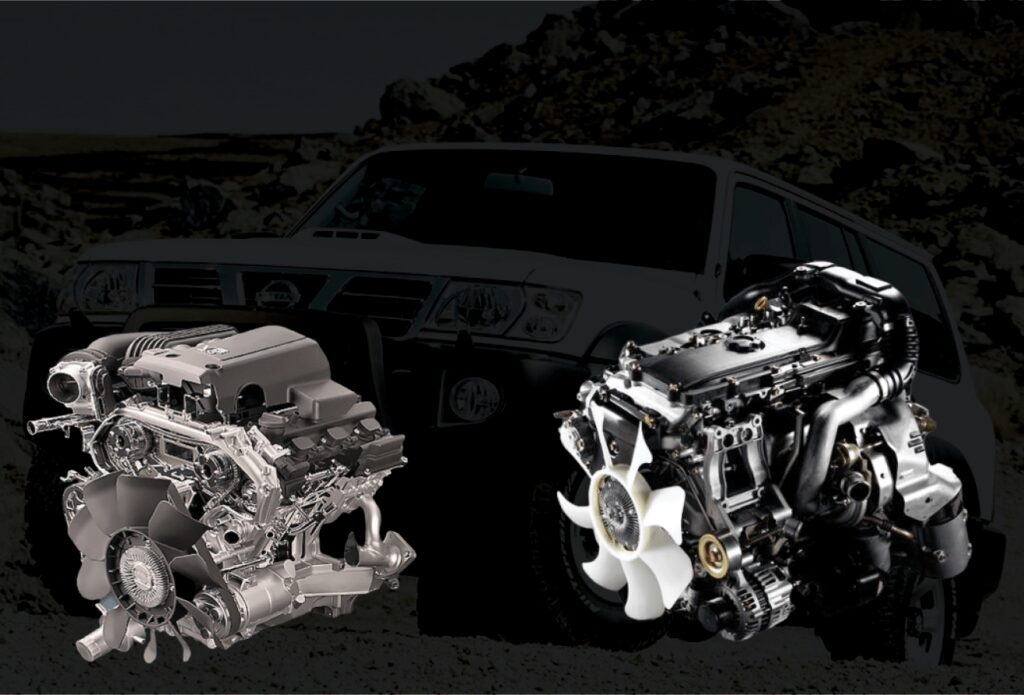
Nissan has garnered a reputation for producing engines that are not only efficient but also reliable.
However, it must be noted that their production line has released some of the worst engines ever made, aptly deemed “lemons.”
In this article, we’ll delve into the abyss of the worst Nissan engines and examine some of the most disappointing motors that have left a sour taste in the mouths of Nissan fans. Interestingly, these engines share a common thread – design flaws.
Without further ado, let us embark on this journey and uncover the nuances that make these engines underwhelming.
Worst Nissan engines - ZD30
When it was first released in the late 1990s, Nissan’s ZD30 engine, a diesel-powered engine, was praised for its outstanding performance in towing and off-road conditions. Nissan owners, however, have consistently expressed their displeasure and frustration with the engine’s reliability.
The ZD30 engine has a large following among Nissan enthusiasts and diesel engine lovers alike despite its apparent flaws.
The engine may offer a relatively dependable service if owners are prepared to spend money on the required upkeep and repairs. It might be a good idea to look into alternative vehicles or engines if you don’t have the time or motivation to maintain the engine.
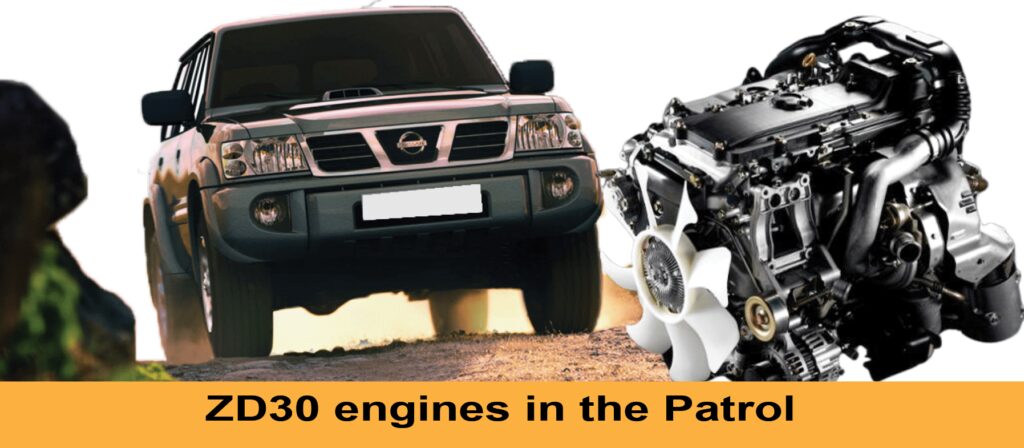
ZD30 engine problems
Overheating was a typical problem with the ZD30 engine. When the engine was first launched, there were numerous reports of engines overheating and entirely shutting down. Of course, this required expensive repairs.
This issue was traced back to a faulty cylinder head, which cracked and spilled coolant into the engine. As a result, the cooling system, including the radiator, thermostat, and water pump, malfunctioned.
Excessive oil consumption was another issue with the ZD30 engine. In certain instances, the engine burnt up to 1 liter of oil per 1,000 kilometers, which is absurd. This issue was caused by worn piston rings, which allowed oil to leak and burn off in the combustion chamber.
The electronic control unit (ECU) of the ZD30 engine failed, causing problems with starting, idling, and choking engine performance.
Aside from these flaws, the ZD30 engine was criticized for its poor fuel economy. Miles per liter are in the single digits, which is entirely inefficient.
This was partly due to the engine’s design, which used an outdated fuel injection technology.
Cars with zd30 engines
The Nissan ZD30 engine has been used in some popular Nissan models like the Nissan Patrol, Navara, and Terrano.
The Nissan Patrol is a rugged and capable off-road SUV popular with adventure-seekers and off-road enthusiasts.
It was powered by the ZD30 engine for ample power and torque in tackling challenging terrain. But the problems resulted in disappointment as captured in the problems above.
The Nissan Navara is also powered by the ZD30 engine. This mid-size pickup truck as expected of the ZD30 had impressive low-end torque and hauling heavy loads or navigating rough terrain was easy as long as the engine worked.
Also powered by the ZD30 was the Nissan Terrano – a compact SUV. Unfortunately it experienced the same problems as the elder cousins above but packed with impressive torque.
Worst Nissan engines - VQ40DE
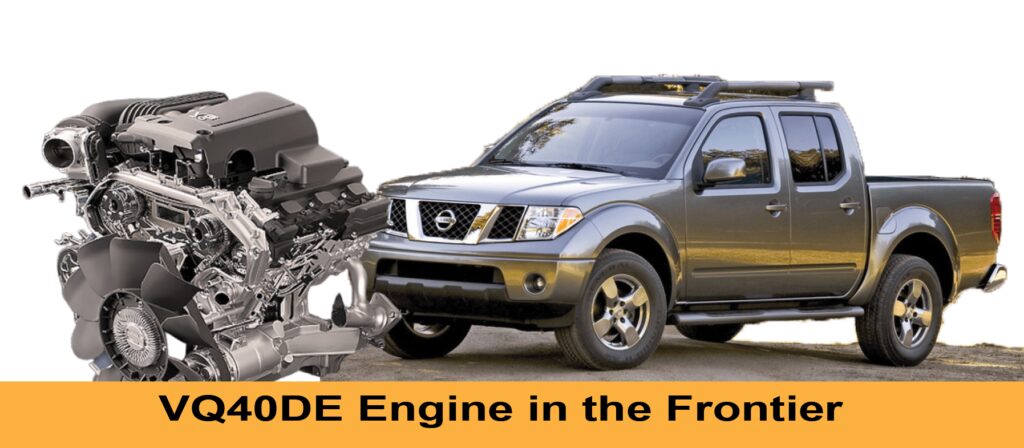
Thanks to Nissan’s cutting-edge technology and engineering, the VQ40DE engine is a V6 powerhouse capable of producing up to 265 horsepower and 284 lb-ft of torque.
Even in SUVs, if properly maintained and cared for, this engine can produce outstanding fuel economy.
In terms of aftermarket improvements, the VQ40DE engine has a devoted following among enthusiasts and tuners.
For this engine, a wide range of performance upgrades and modifications are available, including bolt-on components like exhaust and intake systems, as well as more extensive improvements like forced induction and engine swaps.
As a result, the VQ40DE engine offers a versatile and powerful basis for individuals seeking to design a high-performance Nissan vehicle.
Owners can additionally modify their VQ40DE engine using aftermarket parts.
By installing performance equipment such as headers, exhaust systems, and intake systems, enthusiasts can increase the engine’s power output and sound quality.
Furthermore, adjusting the ECU (engine control unit) of the engine can deliver even more power gains and improve overall performance.
Despite the engine’s amazing capabilities, it is not without flaws. Potential owners should be aware of these issues to make well-informed judgments.
VQ40DE engine problems
Timing chain troubles are one of the most common problems with the VQ40DE engine, especially in early variants.
The engine may make rattling or clattering noises as a result. If not taken care of immediately, a total engine overhaul may be required.
Excessive oil consumption or oil leaks are another prevalent concern with the VQ40DE engine.
This can be caused by faulty gaskets or worn piston rings. Oil leaks, if left unchecked, can result in diminished engine performance and possibly engine failure.
The engine’s variable valve timing mechanism is known to fail frequently.
Faulty fuel injectors in the VQ40DE engine can cause misfires or poor engine performance. This problem can be avoided by upgrading fuel injectors and intake systems.
Nissans using the VQ40DE engine
The VQ40DE engine is found largely in Nissan’s midsize pickup truck, the Frontier, as well as the Xterra and Pathfinder SUVs.
The VQ40DE engine has been used in the Frontier since 2005, while the Xterra and Pathfinder both acquired it in 2006.
Worst Nissan engines - RD28 engine
Nissan launched the RD28 diesel engine in the late 1980s, and it was used in a variety of Nissan vehicles into the 1990s.
It was built for use in tough off-road vehicles and had various qualities that made it an exceptional engine.
One of its distinguishing characteristics is its cast iron construction, which gives durability and strength.
The engine is also designed with overhead valves and a single camshaft, making it simple to maintain. Furthermore, the direct injection system improves fuel efficiency and power production.
The RD28 engine generates 94 horsepower and 157 pound-feet of torque, making it perfect for off-road use.
Its toughness, dependability, and low-end torque have made it a popular choice for off-road vehicles and other applications requiring durability and power.
The RD28, like any other engine, has several frequent faults that owners should be aware of.
RD28 engine problems
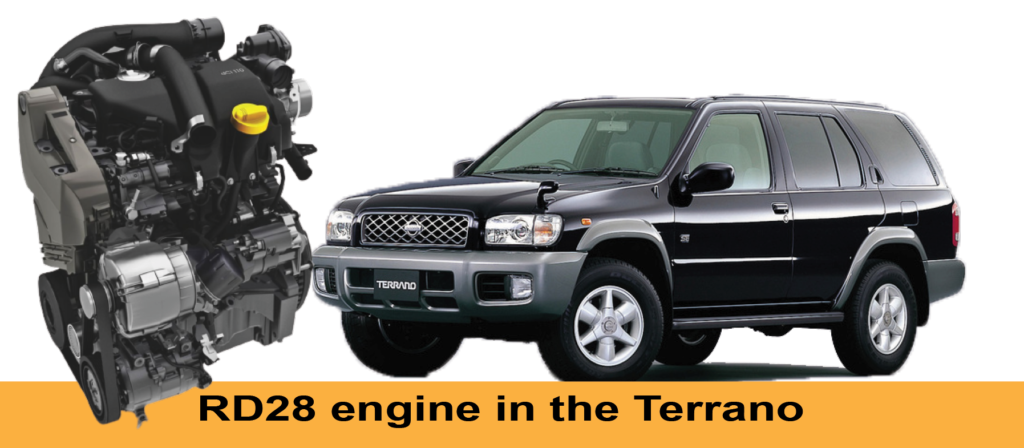
Overheating is one of the most common issues with the RD28 engine. This could be due to a faulty thermostat, a clogged radiator, or a worn water pump.
Oil leaks are another typical problem with the RD28 engine. Wearing seals or gaskets, a broken cylinder head or a damaged piston ring can all cause this.
Some RD28 engines may also have injector issues, resulting in poor fuel efficiency and lower power output.
One thing to bear in mind is that the RD28 is a diesel engine, which means it requires regular maintenance to keep it running at optimal performance.
This includes routine oil changes, fuel filter replacements, and air filter cleanings.
Neglecting these maintenance activities might result in decreased engine performance and increased wear and strain on the engine.
Nissans using the RD28 engine
From 1988 until 1997, the RD28 engine was mostly used in the Nissan’s Patrol. These vehicles were built for off-road use, and the RD28 engine’s torque and durability made it an excellent choice.
The RD28 engine was also offered in some countries in the Nissan Terrano and Nissan Navara pickup trucks.
While Nissan’s RD28 engine was later replaced by newer engines, it remains a popular choice for off-road vehicles.
Bonus - What is the most common problem in Nissan engines?
What is the most common problem in Nissan engines?
The failure of the ignition coil is one of the most frequent issues seen in Nissan engines. Misfires, harsh idling, and a decline in overall engine performance might result from this problem. It is advised that ignition coil issues be fixed right away to stop the engine from suffering additional harm. Regular upkeep and inspections can help find and address this problem before it gets out of hand.
What is the common problem of Nissan transmission?
The failure of the transmission valve body is a typical problem in Nissan transmissions. The valve body directs hydraulic pressure to engage gears and shift the vehicle while controlling the flow of transmission fluid. When the valve body wears out or develops internal leaks, it can cause irregular shifting, slipping gears, and even transmission failure. Regular maintenance, like as fluid changes and inspections, can assist discover and address any transmission valve body concerns before they become serious.
What year Nissans are the best?
The failure of the transmission valve body is a typical problem in Nissan transmissions. The valve body directs hydraulic pressure to engage gears and shift the vehicle while controlling the flow of transmission fluid. When the valve body wears out or develops internal leaks, it can cause irregular shifting, slipping gears, and even transmission failure. Regular maintenance, like as fluid changes and inspections, can assist discover and address any transmission valve body concerns before they become serious.
What is considered the worst year for Nissan Altima?
The 2002 Nissan Altima has been identified as one of the worst years for this particular model, despite the fact that opinions and experiences might vary. It was linked to a number of reported difficulties, including serious engine troubles, transmission problems, and electrical concerns. It’s crucial to keep in mind that not all automobiles from that year might have encountered these issues, and good upkeep and care can reduce potential problems. When deciding on a particular year and model of the Nissan Altima, it is usually advisable to conduct thorough research and refer to reputable sources and evaluations.
Wrapping up
The worst Nissan engines are those that have had persistent problems, resulting in costly repairs or even engine failure.
Regardless of these concerns, it’s crucial to remember that every engine has strengths and drawbacks.
While the ZD30 engine is problematic, it nevertheless has a devoted following among Nissan aficionados who value its off-road capabilities.
And anyone thinking about buying a Nissan with one of these engines should do their homework and weigh all options before making a decision.
Our top picks
